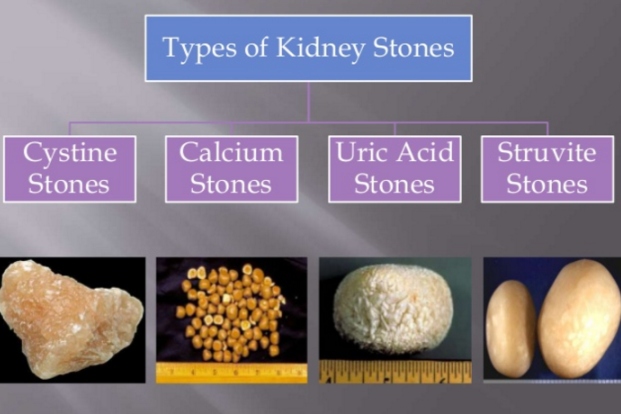Causes and types of kidney stones
Apr 19, 2022
Causes of kidney stones
There isn’t any single or definite cause of kidney stones, however, many factors can raise the risk of it.
Kidney stones get formed when the urine comprises of more of the crystal forming elements like calcium, uric acid & oxalate, than fluid in urine can dilute. In the meantime, the urine could lack elements which prevent the crystals from getting stuck together, developing the ideal situation for formation of kidney stones.

Types of Kidney stones
• Calcium stones– Most of the kidney stones are actually calcium stones, generally in the form of calcium oxalate. An oxalate is a substance which naturally occurs and is found in food & is produced by our liver every day. Some vegetables & fruits, as well as chocolate & nuts have high content of oxalate. High dose of vitamin D, dietary factors, intestinal bypass surgery & many metabolic disorders could raise the concentration of oxalate or calcium in our urine.
Calcium stones can occur in the form of a calcium phosphate as well. This kind of stone is more common during metabolic conditions like renal tubular acidosis. I could also be linked to some migraine headaches or alos with taking some seizure medicines like Topamax
• Struvite stones– These stones get formed as a result of an infection like urinary tract infection. These stones could quickly grow & become very large, sometimes with little warning or only few symptoms.
• Uric acid stones– These stones could get formed in individuals not drinking adequate fluids or the ones who lose a lot of fluid, those on a high protein diet & those having gout. Certain genetic factors may also raise our risk of uric acid stones.
• Cystine stones– Cystine stones form in individuals having hereditary disorder which leads kidneys to excrete excessive amount of certain amino acids, also known as cystinuria.







